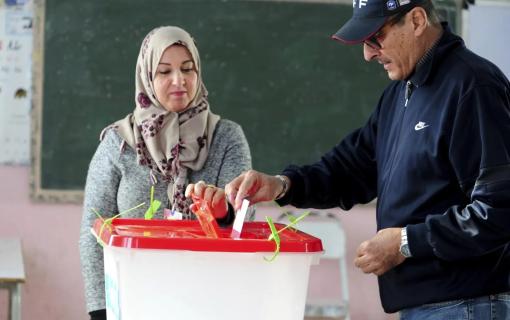Iraq Holds Key Election in Development of Democracy
On April 20, 2013, Iraqi citizens went to the polls to elect representatives to replace the governorate councils elected in 2009. The elections were originally to be held in 14 of the country’s 18 provinces, excluding Kirkuk and the three provinces making up the autonomous region of Kurdistan (Sulaymaniyah, Erbil and Dahuk). However, due to escalating violence, elections in Anbar and Ninawa were postponed.
Governorate councils rule their provinces with broad powers and carry significant weight within Iraq's political structure. IFES Chief of Party Anna Wiktorowska answers some questions about Election Day and what this poll means to Iraq's democracy.
What was the mood on Election Day?
The elections took place in an apathetic atmosphere due to public disappointment over the general security situation, poor services and corruption. However, most people felt they expressed their right to vote freely and with some dose of optimism and hope that the newly-elected governorate councils will improve public services.
How was security on Election Day?
Despite a spike in election-related violence prior to Election Day, which led to the deaths of 14 candidates and the postponement of elections in Anbar and Ninawa, the overall situation across the country on Election Day was not marred by violence. This was due to tight security and curfews imposed to ensure the security of electoral operations.
During the first several hours of voting, there were reports of security incidents leaving a number of people wounded, but no casualties. The curfew was gradually lifted throughout Iraq – initially in four governorates with the High Security Electoral Commission taking a decision to completely lift the curfew throughout Iraq at approximately 3:00 p.m. – to facilitate the arrival of voters to the polling centers.
How was turnout?
According to initial reports from the Independent High Electoral Commission, the total turnout on April 20 – including turnout at special needs voting for Iraqi Security Forces that took place on April 13 – was 51 percent.
When can results (both preliminary and final) be expected?
Initially, primary polling results were scheduled to be announced on April 24 and the final results were to be announced on May 7. Complaints would be adjudicated by May 10 and final results would be certified by May 17, 2013.
However, on April 20, the Independent High Electoral Commission’s Board of Commissioners announced that 90 percent of the preliminary results would be released within five days. And after adjudication of complaints by political entities, the final results would be announced within 12 days of Election Day – by the beginning of May.
When will the new representatives take office?
Governorate councils (GCs) should elect their chairman and deputy chairman within 15 days of certification of election results by the Independent High Electoral Commission. The GCs should then elect the governor and their two deputies within 30 days. The session to elect the council chairman and their deputy is the first session of the council, chaired by its oldest member. The current GC’s work shall be ended immediately from the date of convening the first session of newly-elected council members.
What is the importance of these elections?
These elections are significant, as they raise questions about the future of Iraq and will serve as an important test for Iraq’s leading political parties ahead of the national elections scheduled for spring 2014.
This was the first electoral event conducted after U.S. withdrawal in 2011 with Iraqi Security Forces fully responsible for the safekeeping and peaceful conduct of elections. These elections are an important accomplishment for the Independent High Electoral Commission's new Board of Commissioners, which was appointed in late 2012 and oversaw the organization of this electoral event. However, as with any elections, acceptance of the results will be key for a stable environment in the country.









